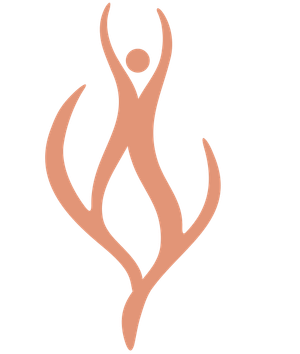In our quest for optimal health, the significance of sleep cannot be overstated. As proponents of functional medicine, we embrace a holistic view of wellness where sleep is a cornerstone for maintaining and enhancing well-being.
Functional medicine distinguishes itself by focusing not just on symptoms but on the underlying causes of sleep disturbances. Utilizing a personalized approach, we consider the individuality of each patient's lifestyle, environment, and biochemistry in our strategies for improving sleep health.

When addressing sleep issues, our functional medicine approach involves an in-depth examination of various contributing factors. We investigate potential hormonal imbalances, nutritional deficiencies, stress levels, and other lifestyle factors that could be impacting sleep quality. In doing so, we move beyond quick fixes and instead advocate for sustainable, natural interventions tailored to the unique needs of each individual.
Our philosophy is that restorative sleep is a critical component that powers the body's natural healing processes. By creating personalized plans that might include dietary changes, stress reduction techniques, and other natural remedies, we aim to realign the body's natural rhythms. This integrative route emphasizes the interconnectedness of the body's systems and seeks to foster long-term, restful sleep as a foundation for overall health and well-being.
Understanding Sleep and Its Disorders
In this section, we'll explore how our sleep cycles underpin health and what happens when they are disrupted by common sleep disorders.
The Basics of Sleep
Sleep is a critical physiological process, vital for our physical and mental health. It is characterized by two main phases: non-rapid eye movement (NREM) sleep and rapid eye movement (REM) sleep. The former consists of three stages, each progressively deeper, culminating in deep sleep.
The latter, REM sleep, is when most dreaming occurs. Our sleep-wake cycle, influenced by the light-dark cycle, dictates natural patterns of sleep and alertness throughout the 24-hour day. Healthy sleep involves sufficient duration, good quality, appropriate timing, regularity, and the absence of disturbances or disorders.

- NREM Sleep:
- Stage 1: Transition from wakefulness to sleep.
- Stage 2: Light sleep before deeper sleep.
- Stage 3: Deep sleep essential for restorative sleep.
- REM Sleep:
- Occurs approximately 90 minutes after falling asleep.
- Characterized by rapid eye movements and increased brain activity.
Artificial light and electronic devices emit blue light that can disrupt our natural circadian rhythms, while exposure to natural light during the day can help maintain a healthy sleep-wake cycle.
Common Sleep Disorders and Their Impact
Sleep disorders, such as insomnia and sleep apnea, greatly impact our health. Insomnia is the difficulty in falling or staying asleep, often resulting in poor sleep quality or deprivation. Sleep apnea involves abnormal breathing patterns during sleep, which can lead to fragmented sleep and reduced oxygen levels in the blood. Restless Leg Syndrome (RLS) is another condition causing discomfort and the urge to move the legs while resting, further disrupting sleep.
Women are restless!
While the exact number is difficult to pinpoint, studies suggest women are significantly more likely to suffer from Restless Legs Syndrome (RLS) than men. Estimates say around 5-10% of the adult population experiences RLS, with women nearly twice as likely to be affected [sleepfoundation.org].
These disorders interfere with both NREM and REM sleep, reducing the restorative effect of deep sleep.

Chronic sleep deprivation can lead to a multitude of health issues including mood disruptions, obesity, cardiovascular disease, and impaired cognitive function. Maintaining a consistent sleep schedule and mitigating factors like bright artificial light before bedtime can improve sleep patterns and health outcomes.
Lifestyle and Environmental Factors

In addressing sleep health through a Functional Medicine lens, we must take into account pivotal lifestyle and environmental factors that contribute to rest. These encompass what we consume, how we move, and the environments we create for sleep.
Diet and Nutritional Strategies
When examining diet and nutritional strategies, we recognize the impact of stress on our eating behaviors and overall metabolism. Consuming a diet high in micronutrients, such as vitamins and zinc, found in meats, mushrooms, and pumpkin seeds, can improve our sleep quality.
For instance, omega-3 fatty acids, prevalent in salmon, have been linked to better rest. We also pay close attention to the timing and composition of meals, particularly aiming to reduce high glycemic index carbohydrates that can spike our blood sugar levels, potentially disrupting our sleep.
Caffeine and alcohol are known to affect sleep. It's beneficial to limit caffeine consumption, particularly in the hours before bed, as it can interfere with the body's natural sleep-inducing mechanisms. Similarly, while alcohol might initially induce drowsiness, it can impair the sleep cycle, leading to non-restorative sleep.
The gut's microbiome and its health play a critical role in our sleep patterns through its influence on the nervous system. Supporting gut health with probiotic-rich foods and fiber can promote better sleep indirectly.

Ultimate Cell Energy
Unlock your brain's potential with Ultimate Cell Energy. This unique formula is crafted to boost brain performance and maintain brain health, so you can stay sharp and focused every day.
Exercise, Movement, and Rest
In discussing exercise, movement, and rest, we recognize the value of regular, moderate exercise to reduce stress levels and enhance mood, both of which contribute to improved sleep. Activities such as yoga and meditation serve dual purposes, supporting both our physical health and mental well-being, and can be particularly effective when practiced consistently as part of our daily routines.
It's important to engage in these activities with mindfulness of our own limits, as excessive physical exertion, especially close to bedtime, may lead to elevated cortisol levels, which can disrupt the natural light-dark cycle that regulates sleep. Balancing movement with intentional rest, such as through guided relaxation techniques or targeted lifestyle modifications, allows our immune system and hormones to function optimally, further supporting restful sleep.
Check out what my own Squawk box has to say...
Natural Remedies and Supplements

In our pursuit of restful sleep, we focus on natural remedies and supplements that support sleep by influencing critical body processes and nutrients. Our bodies require a fine balance of hormones and nutrients to regulate sleep-wake cycles effectively.

Herbs and Plant-Based Options
Herbs have been used for centuries to aid in sleep. Valerian, for instance, is a plant whose roots are commonly utilized as a sleep aid due to its ability to enhance GABA levels, a neurotransmitter that helps regulate nerve impulses in your brain and nervous system. Furthermore, tart cherry juice is an excellent source of melatonin, a hormone that signals to our bodies that it's time for sleep. This natural remedy can increase melatonin levels and enhance sleep quality.
Another botanical worth mentioning is mushrooms. Certain mushroom species such as Reishi can have an adaptogenic effect, possibly reducing inflammation and subsequently aiding in sleep and the body’s ability to repair itself during rest.
Critical Nutrients and Hormones
Magnesium is a vital mineral associated with over 300 enzymatic reactions in the body, including those important for sleep regulation. By supporting GABA production, magnesium helps to quiet the nervous system and prepare your body for sleep. It can be found in many foods, and supplements are also available for those who need to ensure adequate intake to support cognitive function and sleep.
It's essential to consider iron, as well, since deficiencies can disrupt sleep and might contribute to conditions such as Restless Legs Syndrome. Serotonin, a precursor to melatonin and integral for mood and cognitive function, depends on the availability of iron, among other factors.
Supplemental melatonin is often used for shift workers or those experiencing jet lag because it can help reset our internal clocks. However, using melatonin should be done with an understanding of its effects on the body and, ideally, under the guidance of a healthcare provider.

Anti-inflammatory fatty acids, such as those found in fish oil, may also benefit sleep by reducing bodily inflammation, thus potentially creating a more conducive environment for sleep and cellular repair.
In our approach, we recognize that these remedies and supplements interact with our DNA, neurotransmitters, and sleep hormones, influencing our brain's cognitive functions and overall sleep health.
I hope you enjoyed the article and the value I am trying to provide - if you have special requests or want to say HI, you know how to find me 🙋, till then stay Vibrant! 💕 💪🏼 🪞✨





